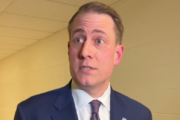Some workers are ready to end working from home and get back to the office. More are hoping for, or expecting, a hybrid schedule that allows them to continue remote work part time. And some are panicking about the inevitable return to their old pre-pandemic office work routine.
Return to work anxiety is real, and employers should recognize it.
A recent survey of professionals by staffing firm Robert Half found one in three currently working from home would quit and look for a new job if required to return to the office full time.
Its survey found only 25% of professionals want to return fully to the office, 49% want a hybrid of remote and office work and 26% prefer to stay fully remote.
Return to work anxiety is a combination of the overwhelming thought of re-acclimating to an office environment they haven’t seen in more than a year, and the fact, despite vaccines, the COVID-19 pandemic is not over yet.
“With us not over the hump and flattening the curve with COVID, people are really concerned about returning to work and making sure they are in a healthy environment,” said Trey Barnette, at Robert Half in D.C.
Barnette says managers should be sensitive to that return-to-work anxiety, and plan for it.
“Employers should probably ease people back into this. Make sure you have a re-entry plan. And actually set up an orientation on how people are going to re-enter the workplace,” he said.
Robert Half’s survey found a “return-to-the-office wish list” among those worried about doing so. It includes the ability to set preferred work hours, personal office space, commuting expenses and employer-provided childcare.
People working from home are used to their comfy pants.
“I think over the last year everyone has had a more relaxed dress code at home, and they would like to keep that going back into the office environment,” Barnette said.
Robert Half says while employers have responsibility to make the re-entry process is as smooth as possible, individual employees have responsibilities as well. It suggest clearly communicating feelings if they are uncomfortable or overwhelmed, making sure they are focusing on positive behavior and prioritizing their health and wellness in what may seem like an unfamiliar environment at first.








